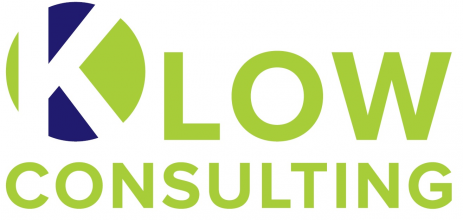Accessibility in healthcare has been described as a ‘global challenge’. As a prominent challenge that many healthcare providers face, developing and maintaining an accessible service for patients is an ongoing issue across the healthcare industry.
Regularly, healthcare tenders have a question centred solely or partially around accessibility. Therefore, answering this question to demonstrate how your healthcare service is providing accessible healthcare for your patients is crucial.
This article will focus on what accessibility in healthcare is and why it is important, how it can be improved in practice and most importantly, how to answer an accessibility question on a tender.
What is accessibility in healthcare?
The definition of accessibility is given in the name itself; it is all about providing accessible healthcare for all.
Having accessible healthcare services available for those who need them is critical as it allows people to get the appropriate healthcare resources in order to help maintain or improve their health.
In a human rights context, accessibility is described by the World Health Organization as: ‘health facilities, goods and services must be within safe physical reach for all sections of the population, especially vulnerable or marginalized groups, such as ethnic minorities and indigenous populations, women, children, adolescents, older persons, persons with disabilities and persons with HIV/AIDS, including rural areas’.
Healthcare accessibility is a broad scope and relates to many different aspects.
Accessibility, therefore, may mean:
- Access to buildings
- Communications with healthcare staff
- Management of appointments
There may be a variety of reasons as to why patients cannot access healthcare services. Some of the reasons may be:
- Lack of transport links. Those living in an urban area may particularly struggle with transport
- Health-related conditions. Certain health conditions may mean that an individual cannot travel to the property
- Financial barriers. Primarily for transport or service charges (e.g. dental or eye tests)
- Organisational barriers
Why is accessibility in healthcare important?
As mentioned above, accessibility in healthcare is key because an individual who is restricted from healthcare access can suffer from further or more serious health-related issues. Consequently, it could lead to serious complications such as disease, disability and even premature death.
Healthcare Accessibility Questions on a Tender
A healthcare tender will usually involve accessibility in one form or another. Before answering this question, think holistically about the healthcare service that you are currently providing to patients.
Asking questions such as “what are we doing to make our healthcare service more accessible for patients?” and “what do we plan to do to improve accessibility in the future?” will help direct your answer.
When writing your answer, you may want to focus on these specific elements:
1) Location and Transport
The location and transport links to your service will need to be carefully considered. Are you located in a central part of the city? Do you have transport links to your practice?
Presenting that you have bus routes, car parks or express buses available for your patients, all feeds into the accessibility of your healthcare service.
If you have free parking bays nearby, or even a ‘park and ride’ option, stating this within your answer will show that your service is accessible to patients.
2) Appointments
For healthcare to be accessible for all, there needs to be appointments available for those who need them. Offering on the day appointments is ideal for those who need urgently seen to.
Appointments available out of hours, for example, 6-8 pm, or weekend appointments, will be made accessible for those who can’t make the standard appointment times. Again, having these additional services enables ease of access for those who work full time or have other commitments that mean they can’t get to the standard appointment hours.
Making these appointments easily available, via online booking systems or through telephone lines, is also imperative. If patients are unable to get through to the line, this is an indication that this healthcare service isn’t readily accessible for them.
3) Equal Access
Considering equal access to healthcare services is a crucial implementation within your answer. This will also enable you to present that your service adheres to best practice and the Equality and Diversity (2010) policy.
For this answer, implementing your Equality and Diversity policy and providing details of the training provided to staff which relates to Equality and Diversity, will be beneficial when demonstrating best practice. We have an article centred around Equality and Diversity that has further information about this.
Equal access ensures that those who are part of a minority, are vulnerable, have protected characteristics or particularly ‘hard-to-reach’ groups are being treated fairly and non- discriminatory.
Providing details of any additional work that you do within the community to help those that are disadvantaged or within a minority will add value to this answer. This could include work undertaken with the homeless or the elderly.
Asylum Seekers or individuals that are limited in their ability to communicate also form part of this group. Having a translation organisation in partnership with your healthcare service will again, improve the accessibility for those groups.
4) Domiciliary Appointments
Although domiciliary appointments may not be stated within the contract, providing these appointments to those who cannot get to the service, will demonstrate that you are considering these groups and have additional measures in place for them. Reflecting this within your answer, will again, be highly beneficial.
5) Demonstrating your patient care service
Indicating that you aim to provide an excellent patient-centred service will be rewarded when answering this question.
Showing that you have various methods of feedback in place and that you actively strive towards improving feedback points, presents that you are trying to provide the best possible patient experience; this helps patient experience and accessibility.
If patients are experiencing any problems in terms of accessibility, asking them what their problems are will help you make the right steps to improving this. Feedback can be done in a variety of ways, our last article outlines some methods of feedback and how to improve patient experience overall.
6) Accessible Information Standard
The Accessible Information Standard states that from 1st August 2016, organisations providing NHS care and/or publicly funded adult social care are legally required to follow this standard. Being aware of this standard and reflecting that your service aligns with best practice is essential.
NHS England stated that organisations should:
- Ask people if they have any information or communication needs and find out how to meet their needs
- Record those needs clearly and in a set way
- Highlight or flag the person’s file or notes so it is clear that they have information or communication needs and how to meet those needs
- Share information about people’s information and communication needs with other providers of NHS and adult social care when they have consent or permission to do so
- Take steps to ensure that people receive information which they can access and understand and receive communication support if they need it
- Contact and be contacted by, services in accessible ways. For example, via email or text messages, receive information and correspondence in formats they can read and understand, be supported by a communication professional at appointments if this is needed to support conversation.
Contact Our Team Today
If you need help on a tender, contact our experienced team of writers today on 0330 133 8823.
Alternatively, send an email to info@klowconsulting.com for more information and details.

